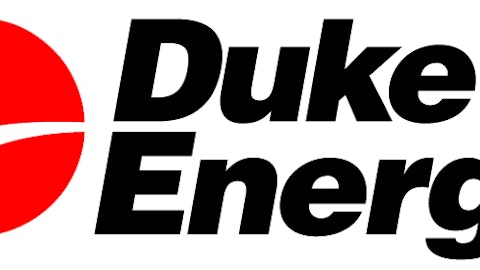The day after I laid out my case for why the canary in the coal mine isn’t dead yet, The Wall Street Journal published a story indicating the Obama administration is still actively hunting the bird down to kill it, while a separate story from the Associated Press says China is trying to cage it, too.

Source: Getty Images
The EPA is poised to promulgate tough, sweeping new regulations that will effectively stamp out any construction of a coal-fired powered plant in the U.S. Although it allows for them to be built if they include greenhouse gas capture technology, the equipment is so expensive as to make it prohibitive and hasn’t been proven at commercial scale, which effectively kills off the construction of any plants. A second phase of the program that may finally bury the industry — or bankrupt it, as Obama promised when he first ran for president — will kick in next year when rules covering existing plants will come into play.

Here at home, utility operator American Electric Power Company, Inc. (NYSE:AEP) would be particularly threatened by the new EPA rules as coal accounted for 71% of its fuel source, even though it’s down from 82% two year ago. The Southern Company (NYSE:SO) has been much more proactive, reducing its reliance upon coal from 58% in 2010 to 38% last year, while bumping up gas from 25% to 42% in 2012.
Even so, I’m not willing to sign the coal industry’s death certificate yet. It may look as if it’s on the brink of disaster, but the EPA previously said it was unlikely any coal-fired plants would be built between now and 2020 anyway. Part of the rationale is the secular decline in natural gas prices brought on by massive amounts of production through innovative drilling techniques such as horizontal drilling and hydraulic fracturing, which the administration is also trying to stymie. So a lot of the ruckus has been already factored into coal stock prices.
And though China’s move could have some negative implications, the restrictions seem targeted toward its major cities and don’t necessarily preclude plants from being built further out. And consumption was already expected to fall below 65% by 2017, while the amount of coal it actually burns is expected to grow. Couple that with India about to surpass China as the world’s largest coal importer, perhaps as early as next year, and foreign markets for coal remain the industry’s best hope.
Beset by chronic power shortages, India has been importing ever greater amounts of coal to fire its plants. Consumption rose 10% last year to 298 million tons and was running 23% ahead earlier this year. China consumes far more coal, but has been relying more upon domestic supplies.
That’s why Peabody Energy Corporation (NYSE:BTU) continues to believe the seaborne trade of coal will grow. Analysts say seaborne thermal coal from the U.S., Australia, and Russia rose 13% over the first six months of 2013, but they’re not as hopeful as the coal giant is. But as I’ve noted previously, not all analysts are on the same page and where a number are expecting peak coal power generation to hit before 2020, Wood MacKenzie says 2030 is the better bet because the infrastructure for alternative fuel sources isn’t in place globally to take up the slack.
It’s hard to argue that the canary is healthy, but as Mark Twain might have said, reports of its death have been greatly exaggerated.
The article Is Coal About to Get Choked Off After All? originally appeared on Fool.com and is written by Rich Duprey.
Fool contributor Rich Duprey has no position in any stocks mentioned. The Motley Fool recommends Southern Company.
Copyright © 1995 – 2013 The Motley Fool, LLC. All rights reserved. The Motley Fool has a disclosure policy.




